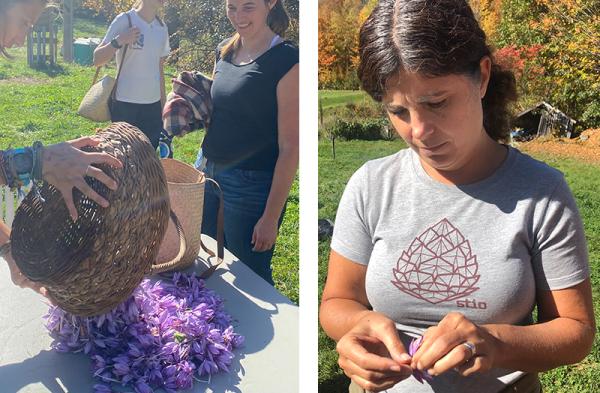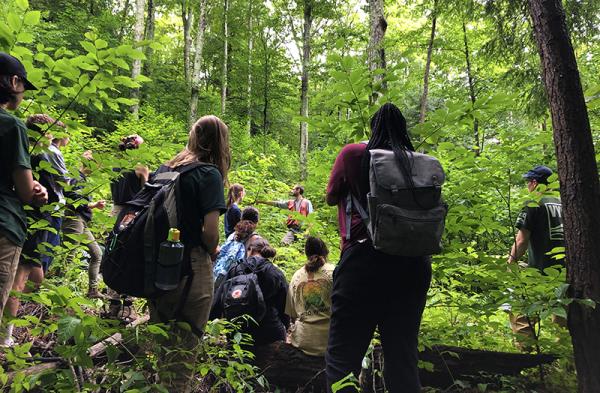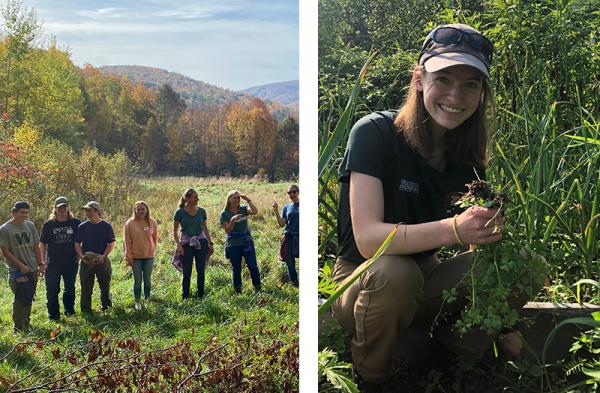Meet a Changemaker: Educator Janis Boulbol
Picture a typical high school experience. “You have snippets of information in every class,” says agricultural innovation teacher Janis Boulbol. “Students go from block to block and often, nothing is interconnected or interrelated.”
Staff and community partners of Vermont’s Woodstock Union Middle High School have long had a vision for how this could be different. In 2020, Boulbol refocused a 65-year-old horticulture elective program to integrate place-based education and promote stewardship of place. Her students investigate plant and soil science (with an emphasis on native plants), agriculture, and forestry. Working in school hoop houses, plus herb and pollinator gardens, students grow nourishing food for the cafeteria and houseplants for the community.
Now, Boulbol and colleague Kat Robbins are looking school-wide, creating a student experience that’s interdisciplinary and immersive, with courses and hands-on projects that address pressing, real-world challenges. They call it CRAFT, Climate Resilience through Agriculture, Forestry, and Technology.
If the idea sounds revolutionary, it should. Boulbol and Robbins’ proposal for CRAFT earned each a coveted Rowland Fellowship for 2021, a prestigious award for visionary secondary school teachers in Vermont. While Boulbol has been a teacher for decades, it was her experience in Shelburne Farms’ Education for Sustainability Immersion program “that shifted everything for me,” says Boulbol. “It really gave me a true voice. Shelburne Farms has created the teacher that I am today. That leadership voice is ingrained in who I am now, and it led me to the Rowland Fellowship.”
“In the place-based education world, Janis’ reputation precedes her as she’s worked tirelessly in the field for almost twenty years,” says Joan Haley, director of education partnership programs for Shelburne Farms with the National Park Service. Haley and Boulbol recently co-facilitated the Forest for Every Classroom program. “Through her love for learning and commitment to the practice, she has become something of a poster child for skillfully integrating education for sustainability and place-based education throughout her curriculum.”
Boulbol and Robbins are now charting a path forward for CRAFT, working in partnership with steering committees of students, staff, and community members. Change at this scale takes patience, but, “I feel extremely hopeful,” says Boulbol. “We strongly believe this is not just about an alternative education. This is about how education really should and could be.”
Students, staff, and community members are heavily involved in the development of CRAFT. “We’re really building student voice and capacity in all of this,” says Boulbol. “Students having their voices heard about envisioning what could happen in the future is incredibly empowering.”


